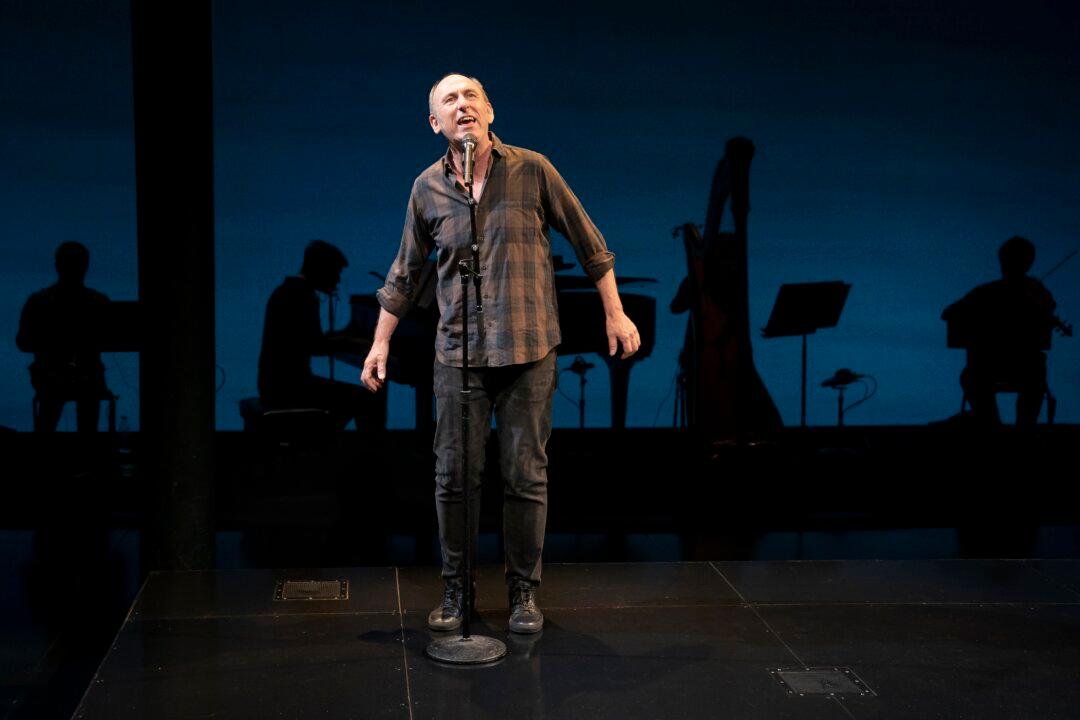NEW YORK—The need for freedom and sanctuary quickly becomes a running theme in David Cale’s extremely personal one-person show “We’re Only Alive for A Short Amount of Time,” now at The Public Theater. Even before the show begins, this point is made clear as the audience enters the theater and is greeted by the sight of eight empty birdcages hanging from the ceiling, each with an open door.
A co-production with the Goodman Theatre in Chicago, “We’re Only Alive” recounts Cale’s painful and tumultuous childhood in the industrial town of Luton, located 30 miles from London, and, “at the time, had the highest crime rate in England.”





